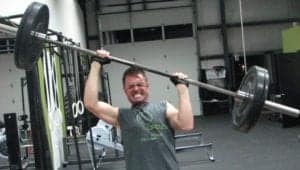My latest article for Breach Bang Clear (BBC) take a hard look at the current “functional” training craze which has become very popular with tactical athletes and non.
Warning: BBC is a no BS site focused on military and combat related topics, and is not for those easily offended by salty language, so if you’re easily offended by four letter words and such…
Just What the Hell is ‘Functional Training’?
[And What’s So Functional About It?]
As anyone not living in a cave the past few years knows, “functional training” is all the rage. On the surface, that’s a good thing. It’s a generally positive trend toward training that’s more functional, applicable, and “real world”. It’s found some acceptance with the military and law enforcement communities, plus the civilian market. Yup, everyone and his mother has jumped on the “functional fitness/functional training” bandwagon.
That’s all well and fine, but it’s also taken many people away from the importance of training specificity concepts. If you attempt to train for a marathon and a powerlifting meet simultaneously, you’ll likely fair poorly at both come competition day. I don’t think that comes as a shock to most.
That’s an extreme example, but it illustrates a point; one can only push the “functional” thing so far before it’s of little value. What does standing on a balance ball doing pistol squats holding a kettle bell (KB) overhead make you “functional” for? I’ll tell you: it makes you functional for standing on a balance ball doing pistol squats holding a KB overhead, and little else.
“But but proprioception!” I hear someone yell. Proprioception is another big buzz term these days, but it’s overused, generally misunderstood, and far less relevant to most people’s training approaches, especially those with specific needs for a specific job (like shooting bad guys in the face, surviving a fight, etc). It’s a buzz term to justify a lot of useless shit and programs, so go argue that one with someone who cares if you think a large portion of training doing goofy shit for improvements in proprioception makes sense.
This brings us back to training specificity. Which is more likely to help you, for example, scale a wall, drag an injured person out of the line of fire, and engage a threat: 1) standing on a balance ball doing pistol squats holding a KB overhead? Or 2) going over a wall, dragging a heavy object a distance, then engaging a target with a specific drill?
The basic rule of training specificity states that to get better at a thing, do that thing repeatedly. “The principle of Specificity implies that to become better at a particular exercise or skill, you must perform that exercise or skill. To be a good cyclist, you must cycle. The point to take away is that a runner should train by running and a swimmer should train by swimming.” (1)
To paraphrase Bruce Lee, “I’d rather fight a man who has practiced ten thousand moves once than one move ten thousand times.”
Cont; HERE
Will Brink is the owner of the Brinkzone Blog. Will has over 30 years experience as a respected author, columnist and consultant, to the supplement, fitness, bodybuilding, and weight loss industry and has been extensively published. Will graduated from Harvard University with a concentration in the natural sciences, and is a consultant to major supplement, dairy, and pharmaceutical companies.
His often ground breaking articles can be found in publications such as Lets Live, Muscle Media 2000, MuscleMag International, The Life Extension Magazine, Muscle n Fitness, Inside Karate, Exercise For Men Only, Body International, Power, Oxygen, Penthouse, Women’s World and The Townsend Letter For Doctors.
He’s also been published in peer reviewed journals.
Will is the author of the popular e-books, both accompanied by private members forum access , Bodybuilding Revealed & Fat Loss Revealed.
You can also buy Will’s other books on Amazon, Apple iBook, and Barnes and Noble.






That’s a very good point about the so called ‘functional training’. Like you say I think many people get taken away by the new ‘hype’ of a certain training method such as functional training. It is always important to know why you are doing it and to remember the actual concepts of training!